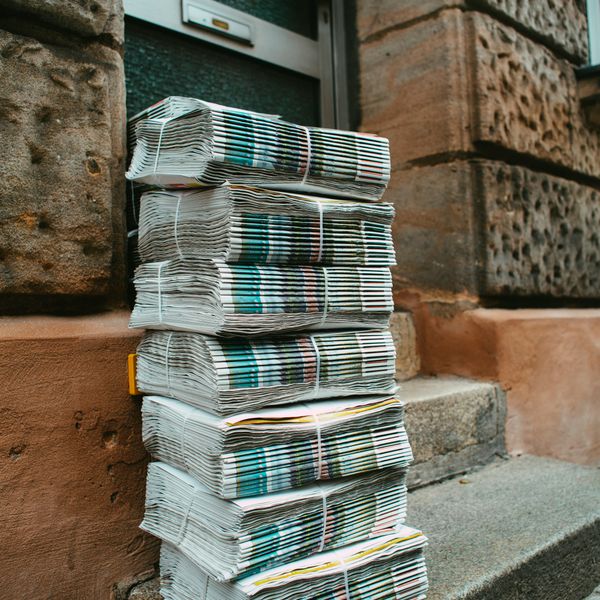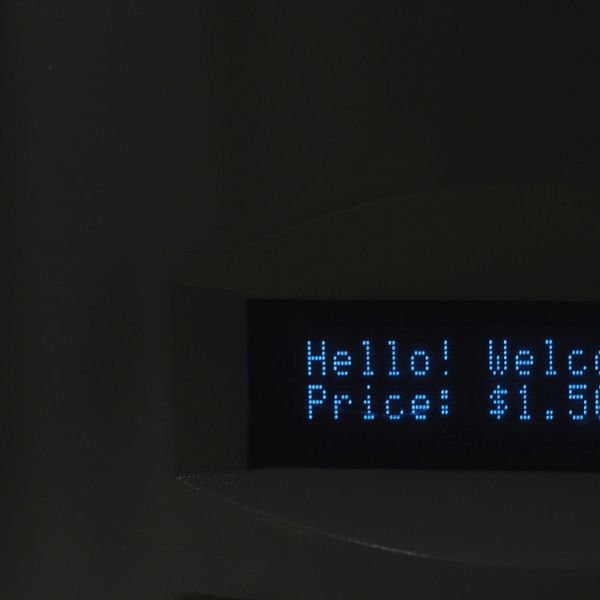Senaste nytt
- Först med de senaste finansnyheter.
Nyheter
Respiratorius Företrädesemission: Utfall och Analys
Respiratorius har slutfört sin företrädesemission och tillförts 10,4 MSEK. Artikeln diskuterar utfallet och ger en rekommendation för investerare.
Respiratorius VD ökar sitt innehav i emission
Respiratorius VD Johan Drott har ökat sitt aktieinnehav med 45 000 SEK i den pågående företrädesemissionen. Bolaget har också fått positiv feedback från FDA, vilket stärker möjligheterna inför en fas III-studie för VAL001.

Respiratorius stärker positionen med FDA-möte
Respiratorius har fått positiva indikationer från FDA inför den planerade fas III-studien av VAL001, vilket stärker deras position på marknaden.


Nyheter
Cyclezyme ökar kapaciteten för enzymatisk plaståtervinning
Cyclezyme AB har installerat nya bioreaktorer med 2 och 5 liters kapacitet för att skala upp sin enzymatiska plaståtervinning, vilket möjliggör större tester och potentiella kommersiella avtal.
Cyclezyme AB: Delårsrapport Q2 2025 och framtidsutsikter
Cyclezyme AB redovisar ett rörelseresultat på -671 KSEK för Q2 2025 och avslöjar betydande framsteg inom patenterad plaståtervinningsteknik.

Cyclezyme säkrar europeiskt patent för banbrytande enzymteknologi
Cyclezyme AB har fått ett europeiskt patent för sin enzymteknologi som möjliggör effektiv och miljövänlig depolymerisering av polyester.

Populära Nyheter

Insikt
Northvolts konkurs: En chockvåg genom Sveriges gröna industri
Northvolt, en gång hyllad som Europas hopp inom batteritillverkning, har förklarat sig i konkurs. Företaget, som samlat in över 15 miljarder dollar från investerare som Volkswagen och Goldman Sachs, kämpade med finansiella svårigheter, produktionsproblem och en avmattning på elbilsmarknaden. Konkursen påverkar inte bara Sveriges gröna industrisatsningar utan också lokalsamhällen som Skellefteå, där Northvolts fabrik var en central arbetsgivare.
Svenska finansvärlden på helspänn: Kommande händelser vecka 10 2025
Den kommande veckan i Sverige präglas av viktiga finansiella händelser, inklusive Riksbankens penningpolitiska möte, företagsrapporter och energisektorns satsningar på hållbarhet. Dessa händelser förväntas påverka både företag och privatpersoner.

Veckosparande i fonder slår kvartalssparande – nyckeln till ekonomisk frihet
Veckosparande i fonder maximerar avkastningen genom att öka din tid i marknaden och minska risken för dålig tajming. Trots samma årsbelopp får veckospararen högre avkastning tack vare ränta-på-ränta-effekten och fler köptillfällen i börsens upp- och nedgångar. Med dagens osäkra marknad ger en kontinuerlig investeringsstrategi stabilitet och bättre resultat för den som strävar efter ekonomisk frihet.

Sensys Gatso: Fartsyndarnas skräck och investerarnas hopp – en 360° analys
- Maurice Gatsonides, en rallymästare på 1950-talet, uppfann världens första fartkamera 1964 och lade grunden för det som idag är Sensys Gatsos unika arv inom trafiksäkerhet. - Bolaget leds av VD Ivo Mönnink och ett erfaret team (inklusive en CTO från elbilspionjären Einride), vars kompetens inom teknik och affärer driver Sensys Gatsos globala framgång. - Sensys Gatso är en global marknadsledare med över 50 000 trafiksäkerhetssystem i drygt 70 länder. Kunderna är främst regeringar, polis och städer som behöver automatiserad fart- och trafikövervakning. - Leverantörskedjan är till stor del europeisk med egen produktion i Nederländerna och partners i bl.a. Sverige, vilket minskar beroendet av asiatiska komponenter. Strategiska samarbeten (t.ex. med saudiska Tahakom och lokala joint ventures i Ghana och Colombia) hjälper bolaget att vinna mark lokalt. - Ekonomiska och politiska faktorer påverkar bolaget starkt: ökat fokus på trafiksäkerhet och Vision Zero ger medvind, medan lagar som begränsar eller kräver tillstånd för fartkameror kan bromsa affärerna. - Sensys Gatso visar rekordomsättning (624 Mkr 2023, +26%) och satsar på återkommande intäkter via sin TRaaS-modell. Trots det är vinsten liten (2% nettomarginal 2023), vilket gör att investerare måste bevaka kostnader och tillväxt noga. - Framtiden drivs av innovation: bolagets FLUX-plattform och AI-inriktade lösningar kan ge ett försprång. Med ambitiösa mål (1+ miljard i omsättning 2025) går Sensys Gatso en spännande men utmanande framtid till mötes.

Trump:s Tullar Ristar Upp Svenska Aktier – Vem Vinner och Vem Förlorar?
Trump:s hot om att införa tullar på 25% mot EU påverkar svenska aktier på flera fronter. Exportberoende företag riskerar högre kostnader, medan de med lokal produktion eller anpassade leveranskedjor kan vinna på att tullarna dämpar utländsk konkurrens. Osäkerheten skapar volatila börser och pressar på inflationen – något som svenska investerare måste förhålla sig till i sina långsiktiga beslut.

Svenska elbilsmarknaden i kris: Teslas nedgång och de nya vinnarna
Artikeln avslöjar hur Tesla tappar fotfäste i Sverige och vilka alternativa elbilar som lockar konsumenterna. Genom en djupgående analys av försäljningssiffror och marknadstrender belyses den förändrade dynamiken på den svenska elbilsmarknaden, med kritiska reflektioner över finanssektorns framtid.

Humble Group: En Djupgående Analys av en Innovativ Digital Spelare
Humble Group har genomgått en remarkabel utveckling, från en startup till en betydande aktör inom digitala tjänster. Bolaget fokuserar på innovativa lösningar, har en diversifierad intäktsmodell och siktar mot fortsatt internationell expansion med ambitiösa mål inför 2025.

Billerud: En Djupgående Analys av Sveriges Ledande Förpackningsföretag
Billerud är ett ledande företag inom hållbara förpackningslösningar. Företaget har genomgått en stor expansion, särskilt i Nordamerika, och siktar på fortsatt tillväxt genom investeringar och produktutveckling. Här analyserar vi verksamheten, kostnader, aktieutvecklingen och framtida mål.

Free2Move, Den Globala Mobilitetsleverantören
Free2Move är en global mobilitetsleverantör som erbjuder tjänster som biluthyrning och företagslösningar. Genom strategiska förvärv, inklusive Share Now, har företaget expanderat sin globala närvaro och siktar på att bli en nyckelspelare inom framtidens mobilitet.

Svensk Ekonomi i Gungning: Inflationschock, Räntebeslut och Bankernas Dubbelspel – Men Finns Det en Vändning?
Sverige upplever en ekonomisk omvälvning med stigande inflation, oförändrad styrränta och ökande bolånemarginaler. Men genom strategiska beslut från Riksbanken, regeringen och näringslivet kan ekonomin vända uppåt igen.


Nyheter
Syncro B Förbereder Expansion med Nyemission
Syncro B planerar nyemission för att finansiera expansion och har valt ny revisor. Årsredovisningen för 2024 publiceras den 9 september 2025.
Aike Media skjuter upp årsredovisningen till september
Aike Media har försenat publiceringen av sin årsredovisning för 2024 till den 9 september 2025, vilket ursprungligen var planerat till den 4 september.

Syncro B byter namn till Aike Media AB
Syncro B byter namn till Aike Media AB, vilket innebär nya handelsbeteckningar på Spotlight Stock Market. Ändringarna träder i kraft den 4 september 2025.


Nyheter
PharmaLundensis Emission Registrerad: Handelsstart Nära
PharmaLundensis har slutfört registreringen av sin företrädesemission. Aktierna kommer snart att vara tillgängliga för handel, vilket kan påverka investerarens beslut.
PharmaLundensis: Ekonomisk Utmaning och Möjligheter
PharmaLundensis kämpar med finansiella utmaningar men ser potential i sin nya Förevaporeringsenhet. Företaget har genomfört en nyemission och planerar demonstrationer för potentiella kunder.

PharmaLundensis: Utmaningar och Möjligheter 2025
PharmaLundensis står inför finansiella utmaningar men har potential genom sin Förevaporeringsenhet och läkemedelsprojekt. En nyemission har genomförts för att säkra driftkapital.


Nyheter
Aptahem tar steg framåt med Apta-1 i klinisk fas
Aptahem AB avancerar med Apta-1, en RNA-baserad behandling för sepsis, i tidig klinisk fas. Investerare bör överväga att hålla aktien.
Aptahem tillkännager nyemission för USA-listning
Aptahem AB genomför en företrädesemission för att samla in 24,9 MSEK. Kapitalet ska användas för USA-listning och regulatoriska kostnader för Apta-1.

Aptahem stärker sin position trots ekonomiska utmaningar
Aptahem har gjort betydande strategiska framsteg under andra kvartalet 2025, trots ekonomiska utmaningar. Företaget stärker sin position med nya samarbeten och förbereder sig för en amerikansk börsnotering.


Nyheter
Hunter Capital Förstärker Positionen i SynAct Pharma
Hunter Capital har tecknat avtal med Heights Capital för att förvärva 1,375,000 warranter och 500,000 aktier i SynAct Pharma, vilket stärker deras position som långsiktig aktieägare.
Hunter Capital Förvärvar Optioner i SynAct Pharma
Hunter Capital har ingått avtal med Heights Capital för förvärv av optioner och aktier i SynAct Pharma, vilket stärker deras position som aktieägare.

Hunter Capital stärker sin expansionsstrategi
Hunter Capital AB har registrerat två nya publika dotterbolag för att underlätta omvända förvärv och planerar noteringar på Spotlight Stock Market.


Nyheter
EcoRub säkrar rekordorder från MV Teknik
EcoRub har fått sin största beställning från MV Teknik, vilket visar på en ökad efterfrågan på hållbara material. Detta kan påverka EcoRubs marknadsposition positivt.
EcoRub landar ny stororder på återvunna gymmattor
EcoRub har säkrat en order värd 250.000 kr från Vartex AB för återvunna gymmattor, vilket stärker deras position inom hållbara lösningar.

EcoRub säkrar order från Sandvik Plast
EcoRub har fått en första order från Sandvik Plast på 50.000 kr för sitt återvunna TPE-material. Prognosen för framtida beställningar ligger mellan 0,5 och 1 miljon kronor.

Investera i den svenska börsen med aktuell finansinformation
På Börs360 hjälper vi dig att hålla dig uppdaterad med den senaste utvecklingen på aktiemarknaden och finansmarknaden i Sverige. Vårt mål är att erbjuda den mest tillförlitliga finansinformationen och detaljerade finansiella analyser som hjälper dig att fatta välgrundade investeringsbeslut. Genom att kombinera finansnyheter, finansiella rapporter och realtidsuppdateringar av aktiedata, får du en heltäckande överblick över marknadens rörelser och trender.
Oavsett om du är en erfaren investerare eller nybörjare som vill investera på börsen, ger vi dig verktygen och insikterna för att analysera olika finansiella instrument och strategier. Med våra skräddarsydda artiklar och djupgående analyser kan du navigera den svenska finansmarknaden med självförtroende.










